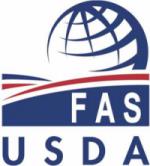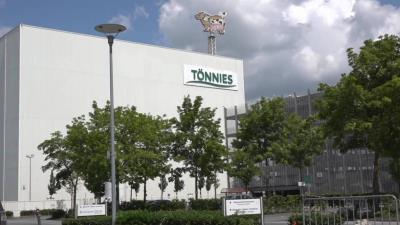|
 USDA-FAS GAIN report GM2020-0041 released on July 5th examined the effect of COVID-19 on the livestock industry in Germany. The ongoing and severe outbreak of COVID-19 among workers at the Tonnies plant in Gutersloh will have repercussions through the entire industry. The plant in question is the largest hog packing facility in Germany, responsible for approximately one third of pork production, slaughtering seven million hogs in 2019. Fifteen hundred workers at the plant have been diagnosed with COVID-19 resulting in closure since June 19th. The outbreak has resulted in extensive community transmission resulting in a shutdown of the town located in the populous state of North Rhine-Westphalia. USDA-FAS GAIN report GM2020-0041 released on July 5th examined the effect of COVID-19 on the livestock industry in Germany. The ongoing and severe outbreak of COVID-19 among workers at the Tonnies plant in Gutersloh will have repercussions through the entire industry. The plant in question is the largest hog packing facility in Germany, responsible for approximately one third of pork production, slaughtering seven million hogs in 2019. Fifteen hundred workers at the plant have been diagnosed with COVID-19 resulting in closure since June 19th. The outbreak has resulted in extensive community transmission resulting in a shutdown of the town located in the populous state of North Rhine-Westphalia.
|
|
Fallout from the outbreak includes accumulation of hogs on farms requiring transport to other slaughterhouses in Belgium and the Netherlands. Farmers in these nations consign approximately 60,000 hogs for slaughter to Germany each week. Farmers in Ireland are also affected as they rely on the Tonnies plant to slaughter up to half of their sows that are processed into sausages and salami.
Alarmed by the incidence rate in the Gutersloh plant, China has banned pork imports from the entire company. In 2019 Germany exported 0.4 million tons of pork to China valued at $0.9 billion. Germany anticipated that due to African swine fever in China, exports to that nation would double in 2020.
|

Wide scale Testing in Gutersloh due to Covid Outbreak in Tonnies Plant |
No other slaughterhouses have been closed as a result of COVID-19, but infections are continuing in packing plants especially in meat-cutting sections characterized by close proximity among workers exposed to low temperature and high humidity. In the case of the Tonnies plant, the exceptionally high infection rate was attributed to defects in the HVAC installation that lacked filtration, facilitating the spread of virus similar to the epidemiology of Legionnaires’ disease. Currently the air-cooling system is being updated with installation of UV irradiation and high-efficiency filters.
rate was attributed to defects in the HVAC installation that lacked filtration, facilitating the spread of virus similar to the epidemiology of Legionnaires’ disease. Currently the air-cooling system is being updated with installation of UV irradiation and high-efficiency filters.
The outbreak in the Tonnies plant has focused attention on physical conditions in plants and also aspects of both animal and worker welfare. Germany has attempted to impose higher standards than those in operation in the remainder of the EU to achieve a competitive advantage as enjoyed by Denmark.
It is evident that if Germany imposes higher standards in plants additional investment in robotics and other improvements will be required. German packers may lose a competitive edge from introduction of a “German standard" seal as proposed under a Federal voluntary label for pork mainly to promote the image of animal welfare.